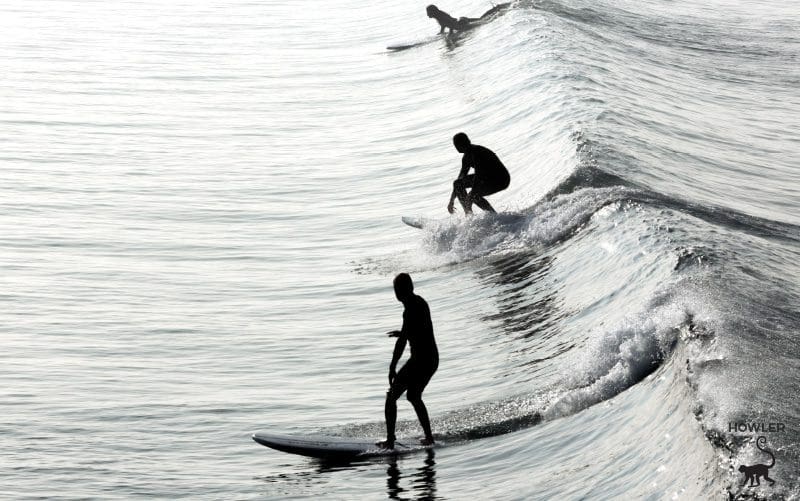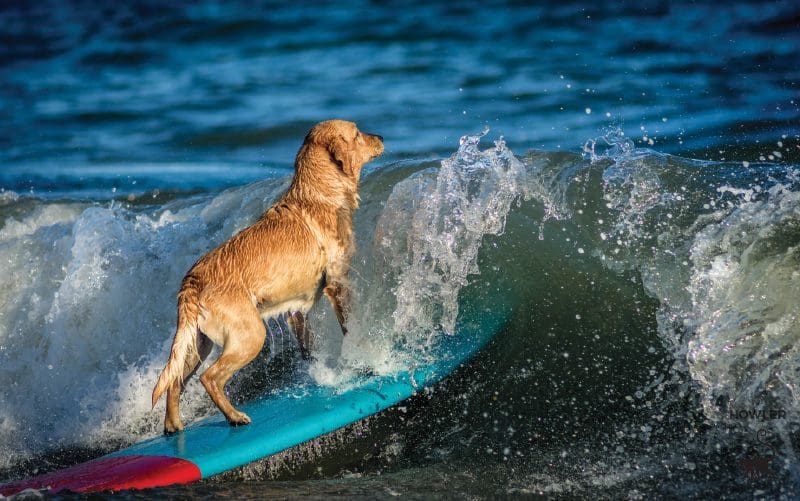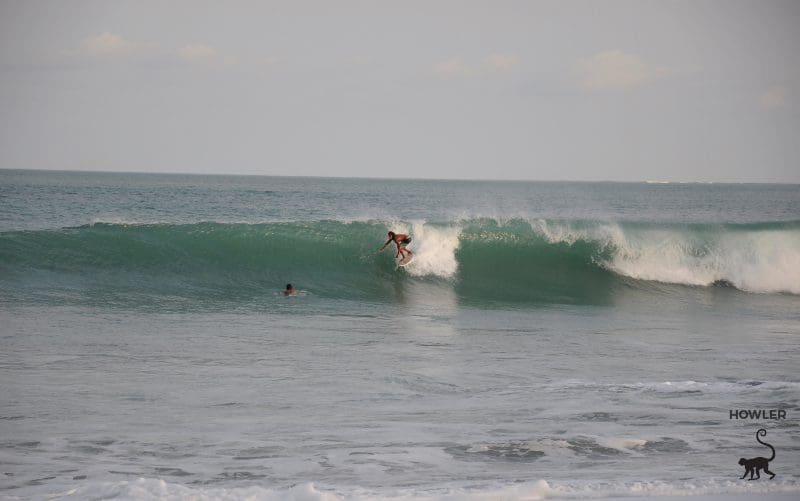
Surf Etiquette 101: More Than Just Popping Up
Surf Etiquette 101: There’s More to Learn Than Just Popping Up. If you’ve taken a surf lesson or two, you’ve probably already stood up on your first whitewater wave. Congratulations! But, before you get too stoked on being a bona fide surfer, you still have a lot to learn. Surfing beyond the whitewater is very different from the shallow shore water scene where you have an instructor standing by your side to help you with your soft top.
Learning to surf is more than just learning how to stand up on a surfboard. It is a sport and a lifestyle that includes a deep understanding of the ocean, an ability to navigate powerful currents, heavy waves, and unexpected scenarios; a present-set mind, a physically fit body and a drive to persevere. There are also safety precautions, rules, and etiquette that must be followed, even when other surfers don’t abide.

Your surf instructor can teach you how to prepare your surfboard, position your body, paddle and pop up. This surfing 101 guide is intended to fill in some of the gaps that are often overlooked or under-taught. With practice, patience, passion and possession of these invaluable out-of-the-water surfing lessons and surf etiquette, you will be on your way to becoming a competent, safe surfer.
Having a positive, respectful, and friendly attitude
in the line-up will go a long way,
especially if you are a visiting surfer.
Expectations versus reality
I am going to be straight with you. Don’t expect it to be easy progressing from the beginner phase. If you don’t live near a consistent surf break or don’t have the opportunity to surf regularly, it will likely take you a long time to advance from beginner to confident and capable surfer. But that’s ok! If you love surfing, you will enjoy putting in the effort and reaping the rewards of your hard work.
Surfing isn’t a sport that you can master. The ocean is the master, and as long as you surf, you are at her mercy. The best you can hope for is to learn how to be in harmony with the sea and surf, and to improve upon the technical components that enable you to catch and ride waves. Know Your Place
Know Your Place
There is absolutely no reason to try and paddle out and surf at a break that far exceeds your current level. Not only will this prove to be a frustrating experience for you, but a dangerous and equally frustrating one for the other surfers in the water. There are all different types of waves and surf breaks, and often more advanced spots are located close to beginner and intermediate-friendly spots. Sometimes, it is just the difference between one peak and another on the same stretch of beach.
“If you’re still in the area where you took your lessons, ask your instructors where is a good spot for you to go practice on your own.” says Juan Jose (JJ) Frijoles Locos‘ head surf instructor. “If you’re at a new beach the local surf shop should happily explain where you should & shouldn’t go as a beginner.”
Knowing your place in the line-up is vital. If you aren’t sure, paddle out wide and sit on the shoulder to assess the surf scene and whether or not this is where you should be surfing. This doesn’t mean that you can’t challenge yourself. But as a beginner, you should be more focused on just getting your pop-up to be fast and fluid, and your makeable wave count to be higher. Repetition is key to building muscle memory and preparing to eventually snag a sizeable set wave or glide through the blue room of a barrel.
When I was first learning how to surf, I would often seek out a peak that had few or no other surfers on it, even if it didn’t look like the most consistent spot to surf. This space allowed me to practice and make mistakes without affecting anyone else. And, since I was able to paddle for any wave that might come my way, I was able to increase my wave count and in turn quickly improve my pop-up so that I could confidently move on to better waves.

Surf Etiquette, attitude, and common sense
Standard surf etiquette includes:
Not dropping in on the surfer who is closest to the peak of the wave.
Paddling back out wide so you don’t interfere with the next surfer on the wave.
Not immediately paddling straight back out to the peak after you have just caught or even wiped out on a wave.
Surfing is about sharing, even though it is an individual sport. The waves belong to everyone and no one, and there are plenty to go around if everyone just follows the rules.

Having a positive, respectful, and friendly attitude in the line-up will go a long way, especially if you are a visiting surfer. There is nothing local surfers hate more than when a visiting surfer paddles out like he or she owns the break. No matter where you go surfing, there will always be a local population of surfers who likely surf that spot anytime there are waves. Before you decide to charge the first wave within reach, take a few minutes to look around, assess the line-up, and respectfully wait your turn.
Don’t paddle for a wave if there is a high chance you could run over or collide with another surfer. Don’t ditch your surfboard when a wave is about to crash on you; that is highly dangerous to you and other surfers. If you accidentally drop in on another surfer, apologize sincerely. Look behind you at least twice before you drop into a wave to make sure you aren’t dropping into someone else’s wave. Don’t paddle out into a situation that you know you can’t handle yet.

Don’t be THAT guy or girl
Surfing isn’t about letting your ego get the best of you. There is always a good chance you will encounter at least one angry, aggressive and self-entitled ego- maniac in the surf, wherever you go. But remember surfing is supposed to be fun and make you happy, not a psychopath. Don’t be the guy or girl in the line-up who ruins it for everyone else. Be the surfer in the water that you would want to surf with.
maniac in the surf, wherever you go. But remember surfing is supposed to be fun and make you happy, not a psychopath. Don’t be the guy or girl in the line-up who ruins it for everyone else. Be the surfer in the water that you would want to surf with.
Remember why you decided to surf
Most of us have our own personal reasons for deciding we wanted to surf and continuing to surf. If your explanation doesn’t include something about the immense joy that surfing evokes, the undeniable bliss, having a perma-grin plastered on your sun-kissed face, or a feeling that can only be described as pure stoke, then this might not be the sport for you. If surfing makes you mad, rude, selfish, inconsiderate and an all-around bad-vibe jerk, you should give it up after you finish reading this paragraph.
However, if that first wave that you just recently caught sparked something in your soul that can only be sustained by another wave, welcome to the rest of your life being ruled by the tides, wind, swell, and moon. At least it will be like that spending time in a place blessed with surfable waves like Costa Rica.
Welcome to a life-long relationship with the sea!
Read more surfing 101 and surf etiquette here!
What Makes a Wave Spit?
The Climate is Changing, Will There Be Waves?
Hurricanes in Costa Rica?
The Importance of Swell Angle
What Makes a Good Surf Spot
What Makes a Good Surf Spot 2
Why Do Waves Break?
Cold Water in Costa Rica?
The Science of Stoke
Tamarindo Spot Check
The Papagayo Winds
How Waves Are Created
